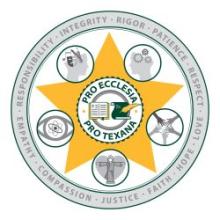Core Vision
The Arts and Sciences core curriculum, taught within a community of Christian scholars, enables men and women to acquire the knowledge, skills, and virtues needed to uncover and recognize truth, to deepen their faith, to live virtuously, to strengthen their communities, and to affect the world in transformative ways.
The College of Arts & Sciences core curriculum is the foundation for a degree from Baylor University, serving to educate men and women to become informed and productive citizens of a democracy and servant leaders of faith communities. For this reason, the College of Art & Sciences maintains a robust core curriculum across diverse academic disciplines such as the sciences, social sciences, humanities, and fine arts. Students graduating from the College of Arts & Sciences will be characterized by independent intellectual perspectives informed and supported by the depth and breadth of the liberal arts tradition. Further, the Arts and Sciences core curriculum supports and builds upon the General Education Outcomes: clear communication, critical thinking, civic responsibility, and Christian perspective.
Functionally, the Core Curriculum will:
- Provide a shared foundation of knowledge drawn from the rich and diverse liberal arts tradition.
- Develop various skills necessary for the completion of an academic degree, but also essential for personal and professional life beyond Baylor.
- Inspire moral, intellectual, and spiritual virtues.
Structurally, the Core Curriculum will:
- Be implemented throughout the four-year experience of Arts and Sciences students. Students will be increasingly challenged as they mature.
- Not be burdensome. Students will be able to build various four-year degree plans successfully around the core curriculum.
- Allow flexibility within the core curriculum to give students multiple ways of satisfying core requirements where appropriate. In this way, instructors and departments will have the freedom to use their talents, skills, and creativity in designing courses that fulfill requirements. Where appropriate, interdisciplinary and inter-departmental courses will be created to address the complex ways humans engage each other and the world.





